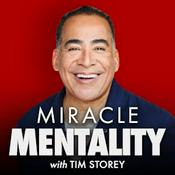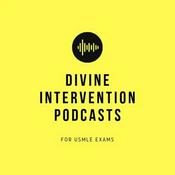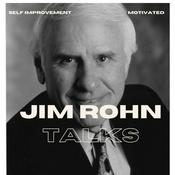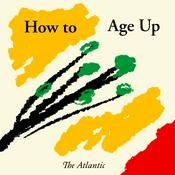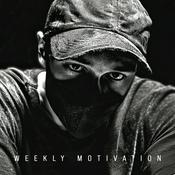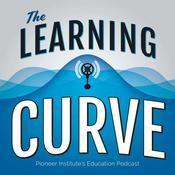159 episodes

154: Physiology-Guided Sepsis Resuscitation: ANDROMEDA-SHOCK 2, Dynamic Fluid Responsiveness, and SEP-1 with Guest Jaclyn Bond
1/16/2026 | 47 mins.
The science is finally catching up to what clinicians have long known: more fluids aren't always the answer to septic shock. In this episode, host Sarah Lorenzini and Jaclyn Bond MSN-LM, MBA-HM explain what the ANDROMEDA-SHOCK 2 trial reveals about physiology-guided sepsis resuscitation and why fixed-volume fluid strategies can lead to avoidable harm.They break down how dynamic fluid responsiveness testing helps teams stop guessing, and how tools like FloPatch support real-time assessment of carotid flow time and stroke volume. You'll leave with a clearer idea of when to give fluids, when to stop, and how to justify the decision.Topics discussed in this episode:The purpose and key findings of the ANDROMEDA-SHOCK 2 studyWhy dynamic measures of fluid responsiveness matter more than static vitalsWhat recent meta-analysis data shows about physiology-guided fluid strategiesCarotid flow time: what it is, how it’s measured, and how it guides decisionsHemodynamic assessment and bedside limitationsHow FloPatch supports real-time assessment so you can make individualized fluid decisionsSEP-1 2026 guideline updates and why it’s better for patientsHow to apply these principles to your workflow Website: www.flosonicsmedical.com See FloPatch in action: https://hubs.ly/Q03-68Hg0Mentioned in this episode:CONNECT 📸 Connect on Instagram: https://www.instagram.com/therapidresponsern/ 📚 Check out my course: https://www.rapidresponseandrescue.com/learnmore 🧑💻Check out my website: https://www.rapidresponseandrescue.com/ 📬 Subscribe to my newsletter: https://www.rapidresponseandrescue.com/login 🎁 Affiliation and discounts: https://www.rapidresponseandrescue.com/therapidresponsern ✅ Earn CE’s for listening to podcasts through RNegade: https://rnegade.thinkific.com/?ref=d9d541 SAY THANKS 💜Leave a review on Apple Podcasts: https://podcasts.apple.com/ca/podcast/rapid-response-rn/id1535997752 💚Leave a rating on Spotify: https://open.spotify.com/show/55LQqeDg6XFeixvZLEp4xE ⏱️ To get the FREE Rapid Response RN Assessment Guide and the coupon code for $10 off the cost of the course, message Sarah on Instagram @TheRapidResponseRN and type the word PODCAST! This episode was produced by Podcast Boutique https://www.podcastboutique.com

153: Remix: Managing Crashing Pulmonary Embolism Patients
1/02/2026 | 26 mins.
Pulmonary embolisms don’t always announce themselves... sometimes they ambush. One minute your patient is walking with physical therapy, the next they’re hypotensive, hypoxic, and coding. This re-released early episode dives deep into why PE patients can look deceptively stable… right up until they aren’t.In this episode, I revisit one of my earliest case-based teachings on pulmonary embolism, updated with an added segment on vasopressin use in obstructive shock from PE. Through real bedside stories from my time as a rapid response and ER nurse, we break down the physiology behind PE-related collapse, why intubation isn’t always the answer, and how to think through management when the right ventricle is failing in front of you. This is a sobering but essential refresher on one of the most dangerous diagnoses we encounter.Topics discussed in this episode:Why pulmonary embolism is a common cause of in-hospital cardiac arrest (even if it’s not common overall)Classic and subtle PE presentations and why they’re often missedA real-time rapid response case: stable to crashing in minutesRisk factors for PE and the anticoagulation double-edged swordObstructive shock explained: what’s actually killing the patientRight ventricular failure, septal bowing, and the spiral of deathWhy intubation can worsen outcomes in massive PEVasopressors in PE: norepinephrine, epinephrine, and vasopressinThe unique benefits of vasopressin in obstructive shockThrombolysis vs. thrombectomy: when TPA helps — and when it’s deadlyBedside echo findings that point to massive PEWhy PE patients can crash during transport (and what to always bring)Nursing vigilance, rapid escalation, and activating help earlyWhen perfect care still isn’t enough and the heart of nursing in end-of-life momentsMentioned in this episode:CONNECT 📸 Connect on Instagram: https://www.instagram.com/therapidresponsern/ 📚 Check out my course: https://www.rapidresponseandrescue.com/learnmore 🧑💻Check out my website: https://www.rapidresponseandrescue.com/ 📬 Subscribe to my newsletter: https://www.rapidresponseandrescue.com/login 🎁 Affiliation and discounts: https://www.rapidresponseandrescue.com/therapidresponsern ✅ Earn CE’s for listening to podcasts through RNegade: https://rnegade.thinkific.com/?ref=d9d541 SAY THANKS 💜Leave a review on Apple Podcasts: https://podcasts.apple.com/ca/podcast/rapid-response-rn/id1535997752 💚Leave a rating on Spotify: https://open.spotify.com/show/55LQqeDg6XFeixvZLEp4xE ⏱️ To get the FREE Rapid Response RN Assessment Guide and the coupon code for $10 off the cost of the course, message Sarah on Instagram @TheRapidResponseRN and type the word PODCAST! This episode was produced by Podcast Boutique https://www.podcastboutique.com...

152: "Don't Touch That Button!" Respiratory Wisdom, Myth Busting, and Everything Respiratory Therapists Wish Nurses Knew About Ventilation With Guest, Melody Bishop RT
12/19/2025 | 55 mins.
Some of the most common respiratory myths are still showing up at the bedside. But it's not your fault — most of us were never taught what an oxygenation problem versus a ventilation problem looks like in real time.In this episode, Melody Bishop RT explains how respiratory therapists think through oxygenation and ventilation to choose the right intervention and recognize when a patient is ready to breathe on their own. We’re calling out the old dogma and myths that can delay treatment and worsen patient outcomes!Topics discussed in this episode:Ventilation vs. oxygenation: the core building blocksV/Q mismatch explainedABG findings for low-flow vs. high-flow vs. BiPAPWhen CO₂ is the problem and the benefits of BiPAPKey indicators it’s time to intubate and the dangers of waitingThe myth of resting patients on ventilationHow to accurately assess spontaneous breathing trialsCOPD, oxygen, and the hypoxic drive mythWhat nurses should know about working with RTsConnect with Melody:https://melodybishoprt.com/Mentioned in this episode:Xshears are the best shearscheck em out here: https://xshear.com//discount/Rapid10 and you can use code RAPID10 to get 10% off your purchaseAND If you are planning to sit for your CCRN and would like to take the Critical Care Academy CCRN prep course you can visit https://www.ccrnacademy.com and use coupon code RAPID10 to get 10% off the cost of the course!CONNECT 📸 Connect on Instagram: https://www.instagram.com/therapidresponsern/ 📚 Check out my course: https://www.rapidresponseandrescue.com/learnmore 🧑💻Check out my website: https://www.rapidresponseandrescue.com/ 📬 Subscribe to my newsletter: https://www.rapidresponseandrescue.com/login 🎁 Affiliation and discounts: https://www.rapidresponseandrescue.com/therapidresponsern ✅ Earn CE’s for listening to podcasts through RNegade: https://rnegade.thinkific.com/?ref=d9d541 SAY THANKS 💜Leave a review on Apple Podcasts: https://podcasts.apple.com/ca/podcast/rapid-response-rn/id1535997752 💚Leave a rating on Spotify: https://open.spotify.com/show/55LQqeDg6XFeixvZLEp4xE ⏱️ To get the FREE Rapid Response RN Assessment Guide and the coupon code for $10 off the cost of the course, message Sarah on Instagram @TheRapidResponseRN and type the word PODCAST! This episode was produced by Podcast Boutique https://www.podcastboutique.com

151: Caring Close to Home: How Point-of-Care EEG and Community Innovation Are Changing ICU Care
12/05/2025 | 30 mins.
Rural nursing is anything but simple. They have limited resources, fewer specialists, and often have to send patients hours away from their families for a higher level of care. But all that is changing as new tech like Zeto brings monitoring right to the bedside and keeps more patients close to home.In this episode, ICU nurse leader Kristen RN shares how point-of-care EEG has empowered her team to catch subclinical seizures sooner and make faster, more informed clinical decisions. From buy-in to implementation, you'll hear how she advocated for her community and successfully integrated this technology into a small ICU. If you work in a rural or resource-limited facility, don't miss this one!Topics discussed in this episode:The unique challenges rural nurses and hospitals faceWhy keeping patients close to home mattersHow telemedicine and new tech are transforming rural healthcareWhy subclinical seizures are hard to recognizeHow Zeto’s spot EEG helps nurses keep more patients close to homeThe positive impact on team confidence and patient careHow you can advocate for the tools your community needsLearn more about Zeto here:https://zeto-inc.com/Mentioned in this episode:CONNECT 📸 Connect on Instagram: https://www.instagram.com/therapidresponsern/ 📚 Check out my course: https://www.rapidresponseandrescue.com/learnmore 🧑💻Check out my website: https://www.rapidresponseandrescue.com/ 📬 Subscribe to my newsletter: https://www.rapidresponseandrescue.com/login 🎁 Affiliation and discounts: https://www.rapidresponseandrescue.com/therapidresponsern ✅ Earn CE’s for listening to podcasts through RNegade: https://rnegade.thinkific.com/?ref=d9d541 SAY THANKS 💜Leave a review on Apple Podcasts: https://podcasts.apple.com/ca/podcast/rapid-response-rn/id1535997752 💚Leave a rating on Spotify: https://open.spotify.com/show/55LQqeDg6XFeixvZLEp4xE ⏱️ To get the FREE Rapid Response RN Assessment Guide and the coupon code for $10 off the cost of the course, message Sarah on Instagram @TheRapidResponseRN and type the word PODCAST! This episode was produced by Podcast Boutique https://www.podcastboutique.com

150: Sepsis-Induced Cardiomyopathy with Dr. Mahmoud Ibrahim MD
11/21/2025 | 48 mins.
Your pneumonia patient is hypotensive, tachycardic, and not responding to fluids… what did you miss? It could be sepsis-induced cardiomyopathy, a common under-recognized shock state you could see at the bedside.In this episode, Dr. Mahmoud Ibrahim MD and host Sarah Lorenzini use a case study to highlight how nurses, intensivists and the ICU team can work together to recognize the signs of sepsis-induced cardiomyopathy early and give patients a better chance at recovery. You'll learn the diagnostic clues that your patient’s heart is in trouble, how to approach controversial treatments like sodium bicarb, and what has to happen before intubation in a dual shock state.Topics discussed in this episode:What the initial bedside assessment says about the patientTreatment priorities for the intensivist and nurseSigns that point to more than just sepsisWhy fluids aren’t always the answerBlood pressure management: vasopressors and inotropesPathophysiology of sepsis-induced cardiomyopathyHow a sepsis-induced cardiomyopathy diagnosis changes treatmentThe vasopressin debate for sepsis-induced cardiomyopathyClues your intervention isn’t working and what to do nextHow to prepare the patient for high-risk intubationWhat you need to know about administering sodium bicarbWhy collaboration matters at every step for patient recoveryConnect with Dr. Ibrahim:Instagram: https://www.instagram.com/icuboy_meded/Facebook: https://www.facebook.com/share/1Dg1ZTyfsN/TikTok: https://www.tiktok.com/@icuboy_mededThreads: https://www.threads.com/@icuboy_mededX: https://x.com/icuboy_mededLearn more about the different phenotypes in sepsis induced cardiomyopathy:https://journal.chestnet.org/article/S0012-3692(25)05143-8/abstractMentioned in this episode:CONNECT 📸 Connect on Instagram: https://www.instagram.com/therapidresponsern/ 📚 Check out my course: https://www.rapidresponseandrescue.com/learnmore 🧑💻Check out my website: https://www.rapidresponseandrescue.com/ 📬 Subscribe to my newsletter: https://www.rapidresponseandrescue.com/login 🎁 Affiliation and discounts: https://www.rapidresponseandrescue.com/therapidresponsern ✅ Earn CE’s for listening to podcasts through RNegade: https://rnegade.thinkific.com/?ref=d9d541 SAY THANKS 💜Leave a review on Apple Podcasts: https://podcasts.apple.com/ca/podcast/rapid-response-rn/id1535997752 💚Leave a rating on Spotify: https://open.spotify.com/show/55LQqeDg6XFeixvZLEp4xE ⏱️ To get the FREE Rapid Response RN Assessment Guide and the coupon code for $10 off the cost of the course, message Sarah on Instagram @TheRapidResponseRN and type the word PODCAST! This episode was produced by Podcast Boutique https://www.podcastboutique.com Xshears are the best shearscheck em out here: https://xshear.com//discount/Rapid10 and you can use code RAPID10 to get 10% off your purchase
More Education podcasts
Trending Education podcasts
About Rapid Response RN
Listen to Rapid Response RN, Becoming UnDone and many other podcasts from around the world with the radio.net app

Get the free radio.net app
- Stations and podcasts to bookmark
- Stream via Wi-Fi or Bluetooth
- Supports Carplay & Android Auto
- Many other app features
Get the free radio.net app
- Stations and podcasts to bookmark
- Stream via Wi-Fi or Bluetooth
- Supports Carplay & Android Auto
- Many other app features


Rapid Response RN
download the app,
start listening.







